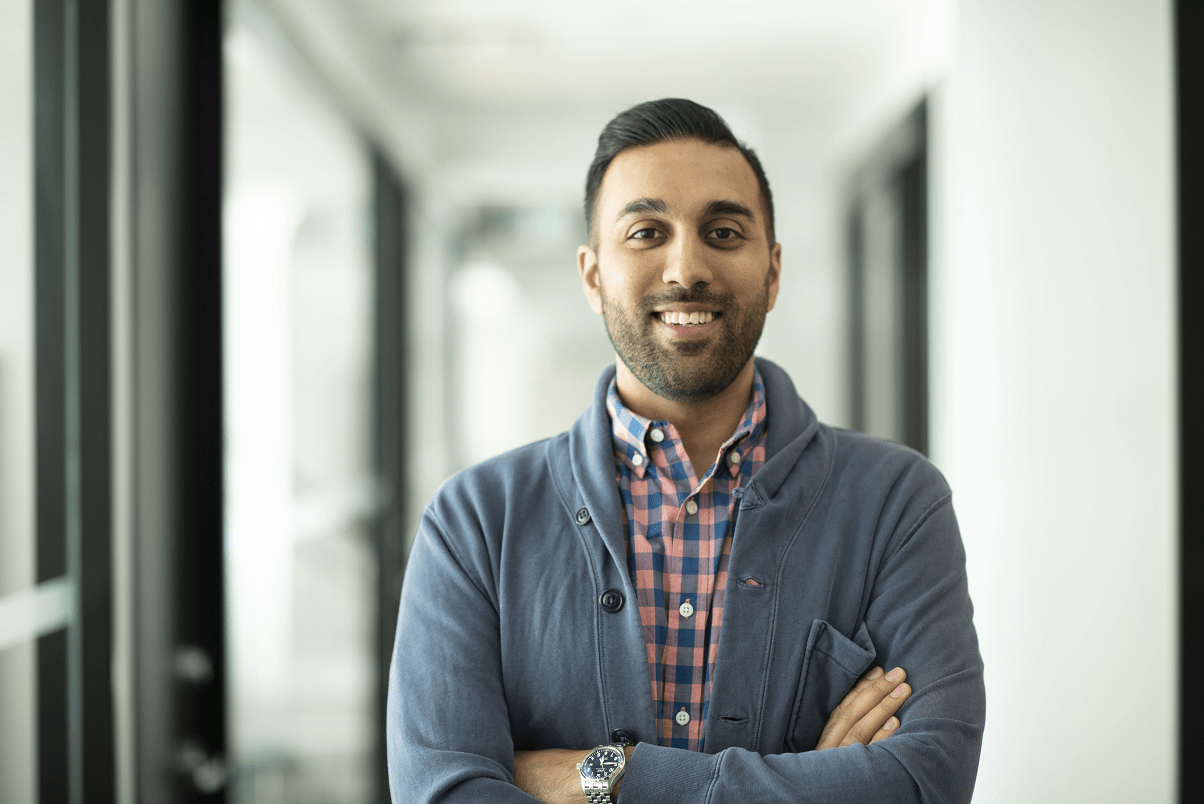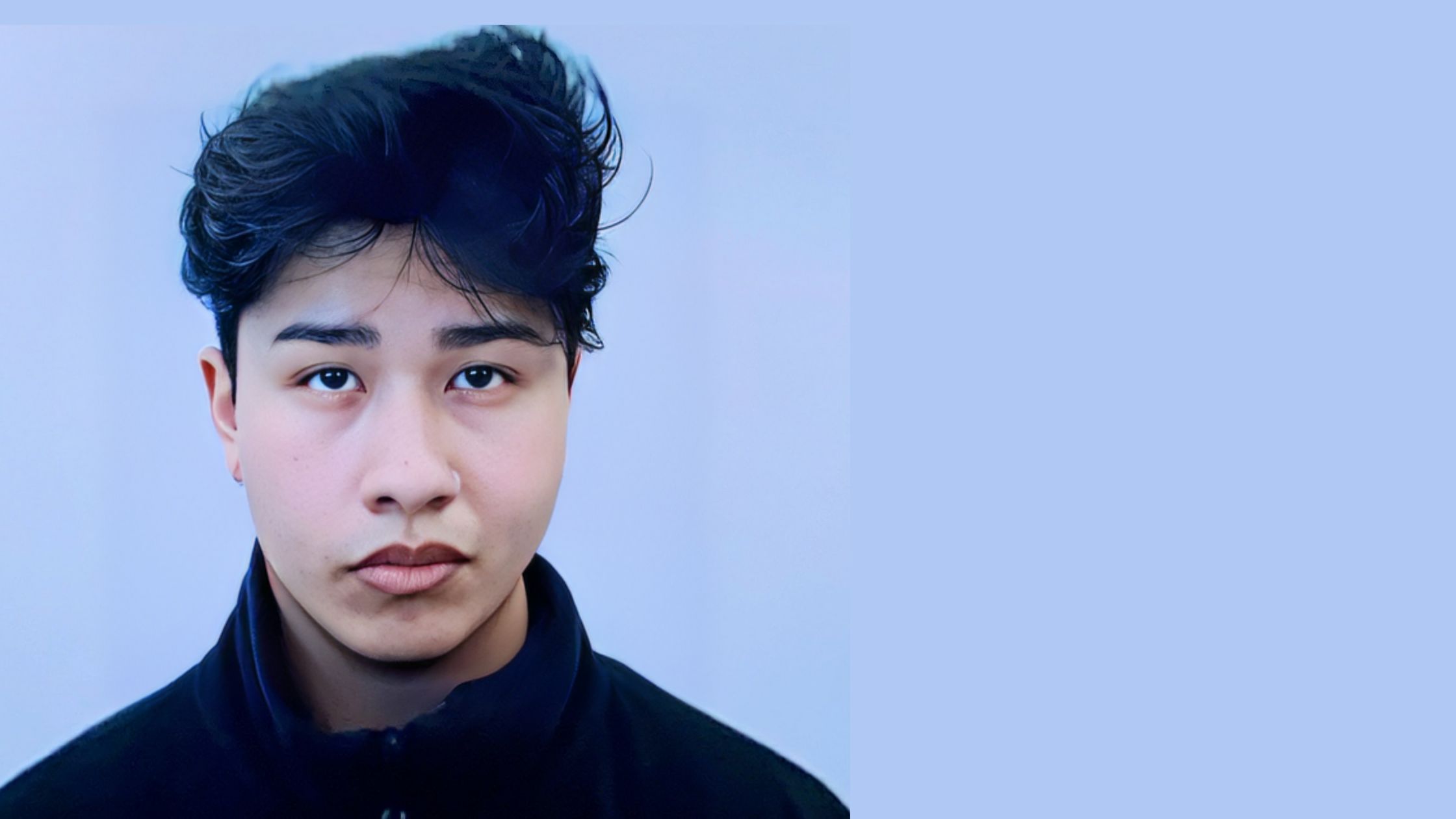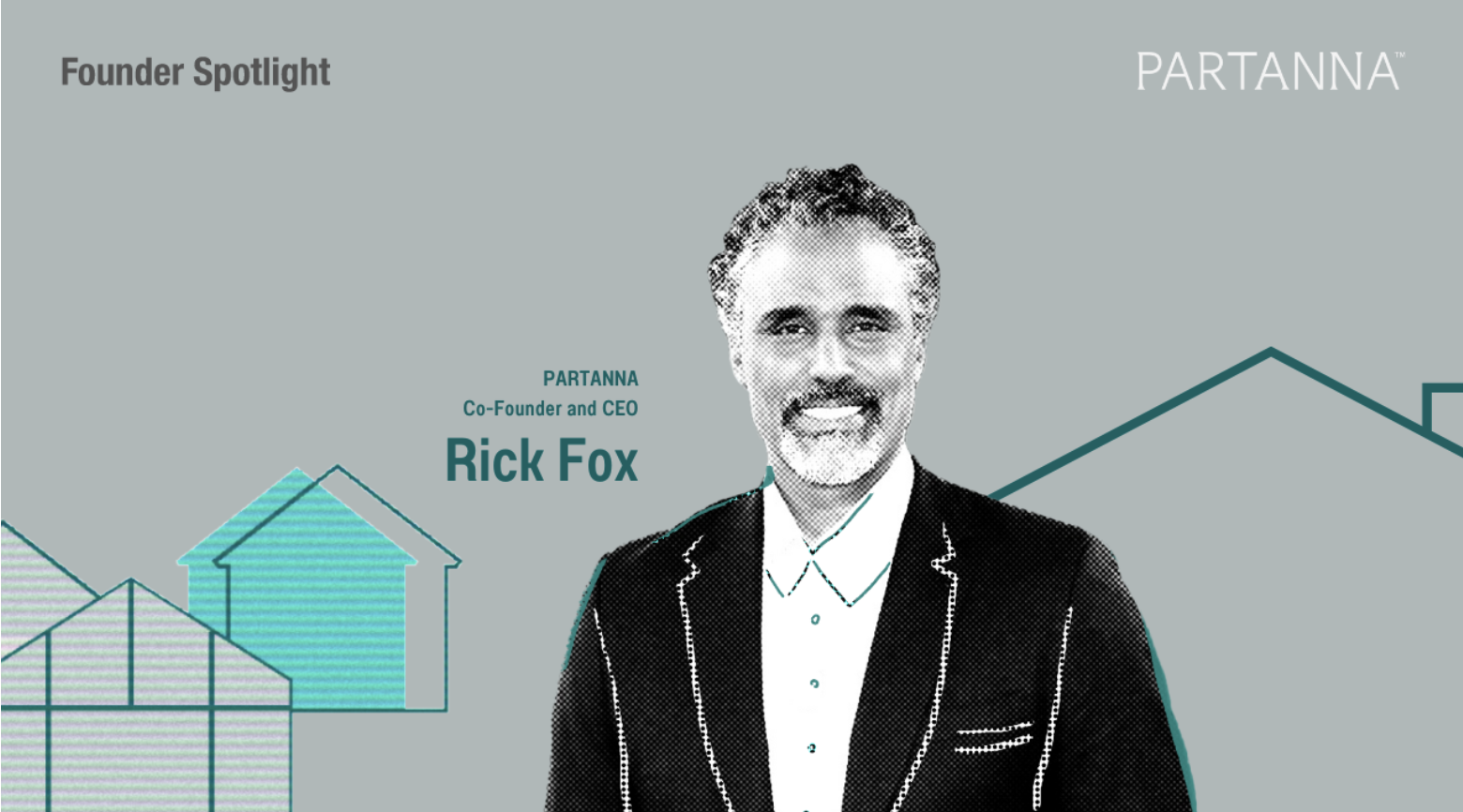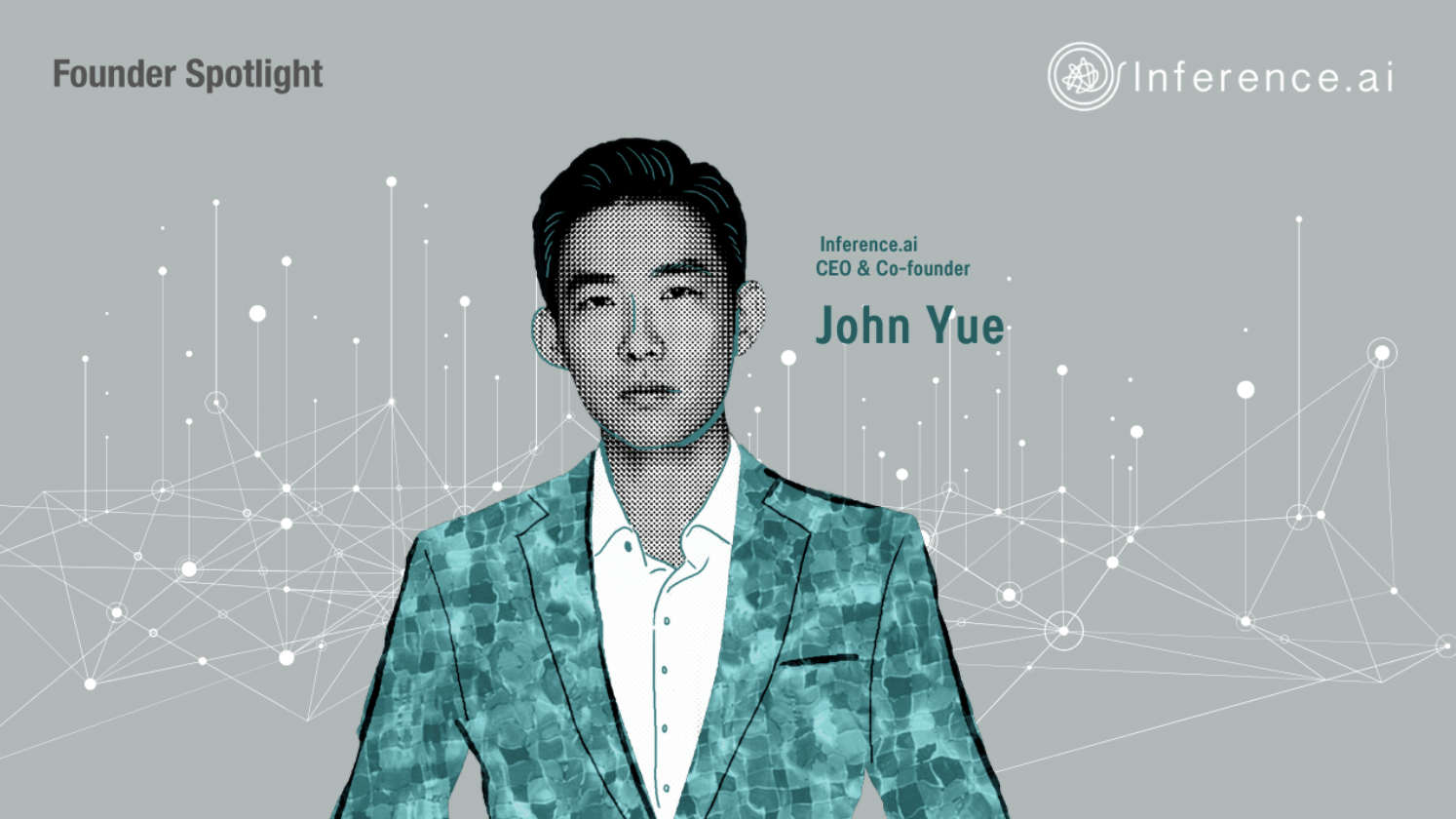AsiaTechDaily – Asia's Leading Tech and Startup Media Platform

Naheed Kurji, Co-founder and CEO, Cyclica on how the startup raised CAD$40 million to build an AI-augmented drug discovery platform
Naheed Kurji is a co-founder and the President and CEO of Cyclica, a Toronto-based venture-backed biotechnology company. Cyclica has built and commercialized an integrated AI-augmented drug discovery platform that embraces the complexity of disease to accelerate the discovery of better medicines. Cyclica has been recognized as one of the top 20 AI in Pharma companies globally by Deep Knowledge Analytics and a Top 100 AI company in 2019.
Naheed is passionate about how people interact with technology to make more informed and faster decisions, and is dedicated to advancing the responsible application of AI to healthcare problems. In his capacity at Cyclica, he is also a co-founder of The Alliance for Artificial Intelligence in Healthcare (AAIH), of which he is 1 of 4 appointed executive officers. Naheed graduated from the full-time MBA program at the Rotman School of Management, at the University of Toronto in 2012.
Naheed answers a few questions with AsiaTechDaily.
If there’s ever a time to push the boundaries of discomfort, it’s now, when the whole world has turned upside down. With ambiguity, there is opportunity.
Let yourself make mistakes, let other people provide you feedback, allow yourself to be coached, and then make the adjustments and work to be better. Have the courage to be incomplete and appreciate that self-optimization is a lifelong journey.
We believe the best time to raise capital is when there is not an urgency to raise so we can focus on our vision and story. It’s crucial to build and maintain, deeply personal relationships, over an extended time with the investor community. Know who is who and what their investment thesis is, and learn what excites and motivates them.
What motivated you to start your company?
I’ve always been interested in and passionate about biology, specifically neurobiology. I entered my undergraduate studies as a biology and biomedical science student at the University of Ottawa. While I was studying and applying to medical school, the entrepreneurial bug bit me and I knew I had to pursue that. With the support of my mentors and coaches, I focused the next 7 years of my career in understanding human capital, by getting a degree in psychology with a focus on organizational behaviour and financial capital by working at TD Bank and Bank of Montreal. I spent a majority of my time at the Rotman School of Management, where I received an MBA in these two areas. At Rotman, Cyclica was seeded. I joined as co-founder and CFO in early 2014, and was appointed as President and CEO in April 2016.
We founded Cyclica because fundamentally we want to change how medicines are discovered to address the needs of patients. The pharmaceutical industry has increasingly been troubled with attrition, decreased R&D efficiency, and ultimately diminished accessibility of medicines to those who need them most. While traditional drug discovery methods have been useful, we believe a target-centric approach has inherent limitations.
At Cyclica, we embrace the complexity of disease. We have uniquely developed and commercialized a holistic, integrated, AI-augmented drug discovery platform to look at all the potential targets in the proteome and design novel molecules with desired properties. This approach made us pioneers of polypharmacology when it comes to computational chemistry and we aim to modernize the future of drug R&D.
Tell us more about your current products/services.
Cyclica is the first company to approach polypharmacology with a structure-based, AI-augmented drug discovery platform, centred on Ligand Express and Ligand Design to advance how scientists discover and design new medicines for all diseases, and ultimately all patients. Powered by MatchMaker™, a proprietary deep learning proteome screening technology, and POEM™, an innovative supervised learning technology for predicting molecular properties. Our platform is uniquely suited to design novel, chemical matter by simultaneously prioritizing multiple desired drug properties. Our technology has been deployed to many top pharmaceutical companies, biotechs and academic institutions across the globe to create the next generation of medicines with greater precision.
How much money have you raised in total so far? When was the recent funding round?
To date, we have secured close to CAD$40 million in total funding. In June 2020, we closed our CAD$23 million ($17 million) Series B round of financing led by Drive Capital with participation from GreenSky Capital, members of our management team and the renowned Italian pharmaceutical company, Chiesi Farmaceutici. Most recently, we have received a prestigious federal grant from the Government of Canada of CAD$2.0 million as one of four health tech innovation companies.
What were the internal decision processes in determining when to begin fund-raising, and what were the logistics for this? How many investors have you met so far and how did you meet these investors and which channels worked best for you?
Over the past seven years, we have met and spoken with hundreds of investors. We believe the best time to raise capital is when there is not an urgency to raise so we can focus on our vision and story. It’s crucial to build and maintain, deeply personal relationships, over an extended time with the investor community. Know who is who and what their investment thesis is, and learn what excites and motivates them. Your story is more than just the technology. Clearly articulate your knowledge of the market, competitors, business model, and most importantly your vision. Engage your senior leadership in the process and expose them and other team members to prospective investors. Trust your colleagues to represent the company with excellence, and rely on them as a sanity check that the investors are people who will work well with the culture you’ve built.
What are the biggest challenges and obstacles that you have faced in the process of fund-raising? If you had to start over, what would you do differently?
Generally, investors are cautious of making investments in traditional biotech companies – which requires both a substantial amount of capital and risk, depending on the phase and progression of the pipeline. What is unique about Cyclica is that investors are not investing in one biotech company. With us, they are investing in a more neo-biotech company or a technology-enabled biotech accelerator that is creating and contributing scientifically to many biotech companies. This unique approach immediately aligned with the minds of the venture capital ecosystem.
What are your milestones for the next round? And what are your goals for the future?
Our goal is to create the largest single portfolio of assets in the biotech industry that we know of to date. With a first-in-class platform, an innovative decentralized partnership model, and a world-class team with deep roots in the industry, we aim to create and own over 300 programs in diverse and underserved disease areas. We can achieve this ambitious goal through our computational scale and partnership with subject matter experts and key opinion leaders in diverse biological and disease areas. By accelerating this model, we are creating the biotech pipeline of the future.
Our ultimate vision is to then progress our novel assets into the clinic and get them into the hands of patients, many of whom are underserved due to their disease being too small to justify the financial investment. By reducing the time and cost related to discovering new drugs, we are able to go after these rare and challenging disease areas that have largely been ignored. Ultimately, our goal is to advance better, more efficacious, safer molecules into the clinic and to the patients who need them most.
How have you attracted users and with what strategy have you grown your company from the start to now?
During the early development phases of our drug discovery platform, we engaged with several academic groups, nonprofits, and biotechnology companies to seek market feedback. This was crucial to ensure that we were creating an optimal and robust platform. To this day, we are continuously innovating, while being scientifically rigorous, based on trends and the needs of our partners. Initially, we offered our flagship proteome-wide screening target deconvolution platform under a software-as-a-service (SaaS) business model, but we quickly realized that a SaaS model was not conducive to value accretion in the biotech space. Now with our more integrated drug discovery platform that includes multi-targeted and multi objective drug design, ADMET property prediction, off-target profiling, and systems biology insights we have discarded the SaaS model and have shifted to something much more innovative and value accretive.
We create new companies as spin outs from academic institutions and partner with early stage biotech companies where we own equity in the organization, while also collaborating more closely with multinational organizations. To date, we’ve created a dozen companies and own the IP in 50 drug discovery programs, well on our way to our target of 300 over the next few years. Our highly trained team of applied scientists work closely with our partners and collaborators to understand their research questions and how our technology can advance their discovery programs. It’s imperative to listen to the market and adapt accordingly.
While our technology is disease agnostic and can be applied to tackle multiple R&D pain points, we look to see if there is a right fit with our partner and most importantly, if their science is sound. We then come in to become their computational chemistry drug design engine to advance their research efforts.
Which has been the best marketing software tool for the growth of your startup and why?
In listening to the market, it’s important to understand your audience and take a multi-prong approach to engage with them in the right way. Using social media to build our audience organically has greatly benefited us in communicating our stories and building our reputation as an industry leader. Scientists are increasingly becoming social media-savvy, with plenty of niche communities on these platforms to share promising papers and current trends in drug discovery. This is one way which scientists in both industry and academia can build trust with the greater community.
If you’re interested to hear the latest updates from Cyclica, our company is exceptionally active on LinkedIn and Twitter. In addition to social media, we’ve harnessed various software platforms to disseminate our message, including virtual webinars and YouTube. Given the virtual environment in which we are operating due to COVID19, using software to cascade messaging is critical to brand management.
What do most startups get wrong about marketing in general?
Looking back to April 2016 when I took over as the CEO, our brand was not in a good place. For a long time, we spoke too much, sometimes about the wrong things, and didn’t back it up with action. We were “all sizzle and no steak”. I see this with many companies, and especially with first-time entrepreneurs.
However, I often see this far too many times in the AI for Drug Discovery space with companies making audacious statements about curing patients at a click of a button. I understand the temptation that exists to sell a good story (the “sizzle”), and then to figure out how to put that story together after the fact (the “steak”). There are always conflicting tensions between investors and the scientific community: one wants to see demonstrable evidence of traction and a clear path to growth, while the other wants to see continuous scientific validation. It is certainly possible to achieve both simultaneously, but I quickly learned that expectations need to be clearly communicated through a thoughtful strategic plan and managed accordingly.
Balance is key: you need to show an audacious vision to create excitement, while also a pragmatic action plan and proof points that one is achieving near term goals and objectives. As the proverb goes: a vision without execution is just hallucination. Companies need to market themselves as visionary and practical. That’s where people get excited and start to build confidence/trust.
How do you plan to expand globally?
With our first-in-class drug discovery platform, a world-class team, and a nimble business strategy, we look to expand rapidly in the coming years. This year, we have grown to a 45 person company and have plans to continue hiring exceptional talent as we scale and work across the globe. To date, we have over 50 drug discovery partnerships programs in a wide range of diseases and have plans to increase that to over 300 programs. This is in addition to the dozens of ongoing collaborations with multinational organizations globally. Geographically, we’ve engaged in partnerships and collaborations in dozens of countries. Cyclica has physical presence in Canada, the United States, and the UK. We also have a growing team in Asia and India.
What are the most common mistakes companies make with global expansion?
A common mistake is not specifying countries. Ask someone what they mean by “Europe” and you’ll get widely varying answers—Western Europe, the European Union, the euro zone, and so on. Customers identify at the national level, and marketers need to remember that every country has its own cultural norms, local laws, forms of currency and payment, and unique business practices.
By not adapting their sales and marketing channels, many companies (specifically North American ones) believe they can enter new markets by following the same playbook that brought them their domestic success. While brand consistency is important, different markets favour different approaches to build relationships. For example, in countries where relationships have a higher cultural value, such as Japan, selling products and services through local partners, by resellers or channel partners, achieve greater success than direct sales methods.
How did you handle the COVID-19 outbreak?
If there’s ever a time to push the boundaries of discomfort, it’s now, when the whole world has turned upside down. With ambiguity, there is opportunity. At Cyclica, it is important to have deep empathy for the personal challenges our team may be facing and truly be understanding of their personal circumstances (i.e. kids at home, significant others not working, general anxiety about the world right now, etc.). The standard corporate catchphrases such as “value the team, foster positive culture, etc.” are put to work and stress-tested in this environment. During uncertainty, one’s words get tested through actions, and that’s how a leader will be evaluated. That’s how it should be.
With the change brought by the COVID pandemic, we have adapted our organization in several ways. We are trying new meeting formats, engaging new team members in running meetings and most importantly, we have updated our onboarding processes for new employees to match the current paradigm. Going beyond the organizational operations, we have improved our presentation decks and tried new ways of telling our story. This is not to say that it’s time to throw the baby out with the bathwater (as they say), but instead to introspect on opportunities for subtle but potentially impactful changes.
What are the most common mistakes founders make when they start a company?
The biggest failure was not prioritizing our people and failing to protect our culture. Of our 40+ employees, 25 are PhDs who have deep technical expertise in specific areas where they had done one thing or a couple things exceptionally deep over time and now we are saying take that into context and look wide in a more holistic paradigm. This made human capital management a substantial challenge and early on in our evolution as a company, we did not manage or harness the opportunity of cohesion and harmony of the culture. As a result, many parts of our business were spread and diffuse. Our technology did not develop nearly as fast as it should have and our business model was scattered. We said the wrong things to the marketplace because there was no cohesion in our messaging. We were not taken seriously and people would not invest in us. It was a difficult time, but we worked hard at understanding the fundamentals and correcting for it to get where we are today.
Learning from these mistakes, we have a guiding principle at Cyclica: hire, reward, and retain the best, brightest, and most committed people. Set them up for success. We have now grown to a 40+ person company where this principle is still the foundation of our culture.
What’s the best advice you’ve ever received? and What advice do you have for someone who is interested in starting a similar startup like yours?
The biggest lesson that I learned, and that I want to share with every entrepreneur is that focusing on product development, business development, and fundraising at the expense of focusing on your team is short-sighted. That debt will catch up, and when it does, it’s a painful lesson. Trust me. It may take extra energy to think about soft skills like infusing meaning and visibility through all-hands meetings, as well as one-on-one coaching, mentorship, and career discussions, but doing it right the first time will inculcate a culture that will then propagate to new team members, and will save you the heartache and the financial loss of having to replace really good people.
What are the top-three books or movies (TV series) that changed your life and why?
I shift between fiction and nonfiction. The last nonfiction book I read was one of my all-time favourites: The Book of Negroes by Lawrence Hill. It’s about Aminata Diallo, who was abducted as a child from her village in West Africa and traded as a slave in South Carolina. It’s her story of surviving slavery and fighting for her freedom, serving the British in the Revolutionary War, and eventually travelling back to Africa. This book, which I finished 4 months ago, has been heavily on my mind given the Black Lives Matter movement and the racial and social injustices that we continue to face. Phil Knight’s Shoe Dog is also an all-time favourite. The story of the early days of Nike and working within the Japan market place helped me appreciate cultural differences in businesses and led to us collaborating with a number of Japanese pharma companies. I keep going back to Blink by Malcom Gladwell as it reminds me to rely on my intuition and to have the courage of being incomplete.
How do you keep yourself motivated every day?
I wake up every day energized by the conversations I am going to have with my team. I work with the best and smartest people I’ve had the privilege of knowing in my life, and as someone who aspires to constantly learn, every day is a lesson in something new. I also believe that we are working on something will have demonstrable and sustainable impacts on humanity. Beyond that, I like moving fast and being engaged in multiple things at once. Building Cyclica is akin to playing a multi-dimensional chess board. I love the complexity and challenges – it’s addicting. I truly am so grateful to be in this position. Whenever I need a boost, I jump on the Peloton or go for a workout.
What are the top- three life lessons that you want future generations to know?
This is a particularly salient question as my wife and I are expecting our first child in January 2021. I’d like our daughter to know the following: i) humility matters. Not knowing something, taking pride in that, and learning from others is an incredible skill set. ii) Don’t strive for perfection, that’s not attainable. Strive to be the best you can, constantly work on that, and celebrate the ups and downs on that journey. Let yourself make mistakes, let other people provide you feedback, allow yourself to be coached, and then make the adjustments and work to be better.
Have the courage to be incomplete and appreciate that self-optimization is a lifelong journey. iii) Be respectful and truly care about people, and invest your time and knowledge in them, even if they have nothing to offer. If it wasn’t for my mentors and coaches, all of whom are still in my life today, I’d be nowhere. They gave me everything, and asked for nothing in return. That investment is the greatest investment I’ve ever received, and now my goal is to pass it on.
What would you like to be remembered for?
Someone with high integrity, honesty and empathy. These are the roots that my parents worked hard to solidify in my brother and I, and I hope I can pass on to others and build within my company. I believe success, however you want to define it, is built on this.
Interested in reading about startup fundraising? Read more articles here.





